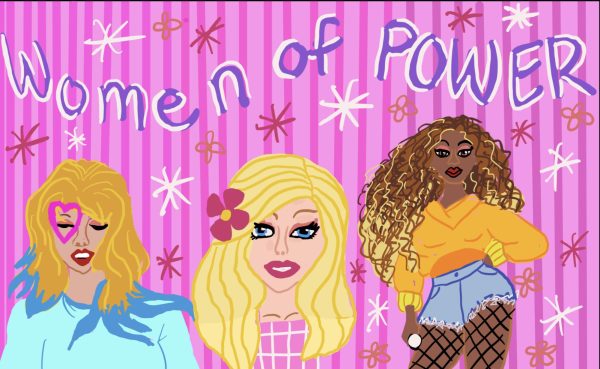Remembering a Role Model: Justice Ruth Bader Ginsburg Dies at 87
As the sun rose over our nation’s capital on September 19, innumerable mementos, flowers and messages overwhelmed the pristine steps of the Supreme Court. Extinguished candles stood above the sea of bouquets and signs as solemn evidence of a makeshift midnight vigil. As mourners continued to arrive in droves to pay their respects, some tearfully embraced their families, grieving the loss of a remarkable jurist and inspiring role model. Still others ushered small children dressed in her characteristic black robe and lace collar to the front of the crowd, impressing upon America’s next generation the importance of a legend, icon, and pioneer: Justice Ruth Bader Ginsburg.
Appointed in August 1993 by President Bill Clinton, Ruth Bader Ginsburg became only the second woman ever appointed as a Supreme Court Justice; however, her trailblazing career began long before her 27 years on the Supreme Court. Born in Brooklyn in 1933 to immigrant parents, Ginsburg’s early life was heavily influenced by her mother, who insisted that she pursue an education. Taking her mother’s advice to heart, Ruth ultimately graduated from Cornell University at the top of her class. Ginsburg later attended Harvard Law School, where she was one of only nine women in her class. After finding that many private law firms were prejudiced against female attorneys, she took a position as a clerk in the U.S. District Court for the Southern District of New York, and she dedicated her career to ensuring gender equality.
In 2015, Justice Ginsburg became an icon with the publication of her biography entitled Notorious RBG: The Life and Times of Ruth Bader Ginsburg, written by Irin Carmon and Shana Knizhnik. Additionally, the 2018 biopic On the Basis of Sex documented Ginsburg’s efforts to introduce legal prohibitions on gender discrimination. As Fenwick AP Government teacher Ms. Logas said, Justice Ginsburg “greeted this chapter of her life with a very funny sense of humor, and I think she understood that it had a significance far beyond her being a role model for young women like she once was.” Such incredible tributes memorialize not only Justice Ginsburg’s numerous achievements, but also her exemplary spirit.
Throughout her career, Justice Ginsburg never allowed partisanship to interfere with the fundamental respect she had for her political opponents. In fact, though she was arguably the most liberal justice on the Supreme Court, she became close friends with one of the most conservative, Justice Antonin Scalia, who passed away in 2016. The two had a fundamental and mutual understanding, for as Justice Scalia once said, “I attack ideas. I don’t attack people.”
This seemingly simple statement is in total contradiction to the partisan world that Fenwick students are now being forced to navigate. In the days after her death, conversations about appointing a justice to fill Ginsburg’s position quickly devolved from genuine efforts to honor her legacy to aggressive mudslinging from both political parties.
To many, it seems that Ruth Bader Ginsburg’s fundamental values have been seemingly swept away by the endless sea of political rhetoric. As Linden Gierstorf ‘22 noted, Ginsburg was “an icon who fought for equality on the basis of sex and culture.” Would Justice Ginsburg have supported President Trump or Joe Biden publicly announcing that certain positions in their administrations would be filled by a woman, not because she was the most candidate qualified for the position, but because of her gender? “Ruth Bader Ginsburg gave a great example of how to remain objective and fair in times of extreme partisanship,” said junior Peter Zeh. Would Justice Ginsburg, the first Jewish woman to be appointed to the Court, have approved of attacks on Supreme Court nominee Amy Coney Barrett, simply because of her Catholic faith?
In the current political climate, our public figures may seem to consistently cling to the facades of such ideals as “equality,” and “justice,” while choosing to defy Justice Ruth Bader Ginsburg’s irrevocable dedication to respecting others. Junior Erica Stehlik adamantly stated that Justice Ginsburg’s legacy opposes this apparent hypocrisy among our leaders, and teaches Americans that “although we may never see eye to eye, the most daunting obstacles are overcome through a unified persistence.” Ms. Logas agreed, saying, “I hope she is remembered for her grace and kindness to fellow judges and attorneys with whom she disagreed. We could certainly use more of that in the America she left behind.”
As the 2020 election approaches, Fenwick students are presented with the remarkable opportunity to promote the genuine principles of Justice Ginsburg’s legacy—equality, justice, and most fundamentally, respect. As Fenwick Friars, we must become defenders of justice, advocates of equality, and champions of respect, for our generation’s actions will undoubtedly determine whether Justice Ruth Bader Ginsburg’s legacy is to be drowned out by the crashing waves of political animosity, or whether her memory will be carefully curated and woven into the very fibers of our American identity.












